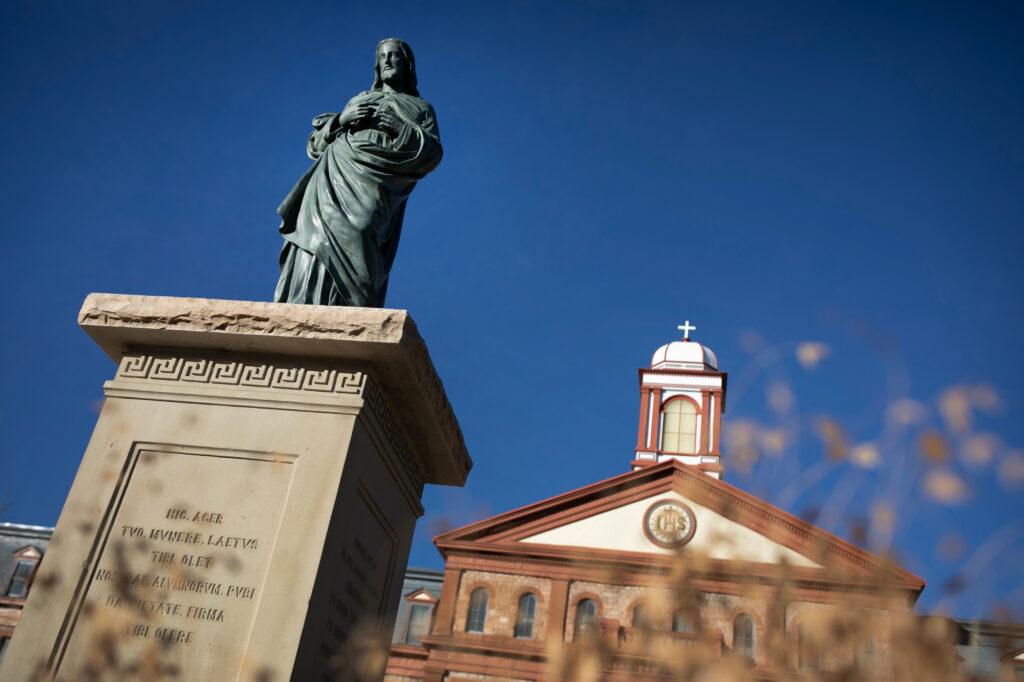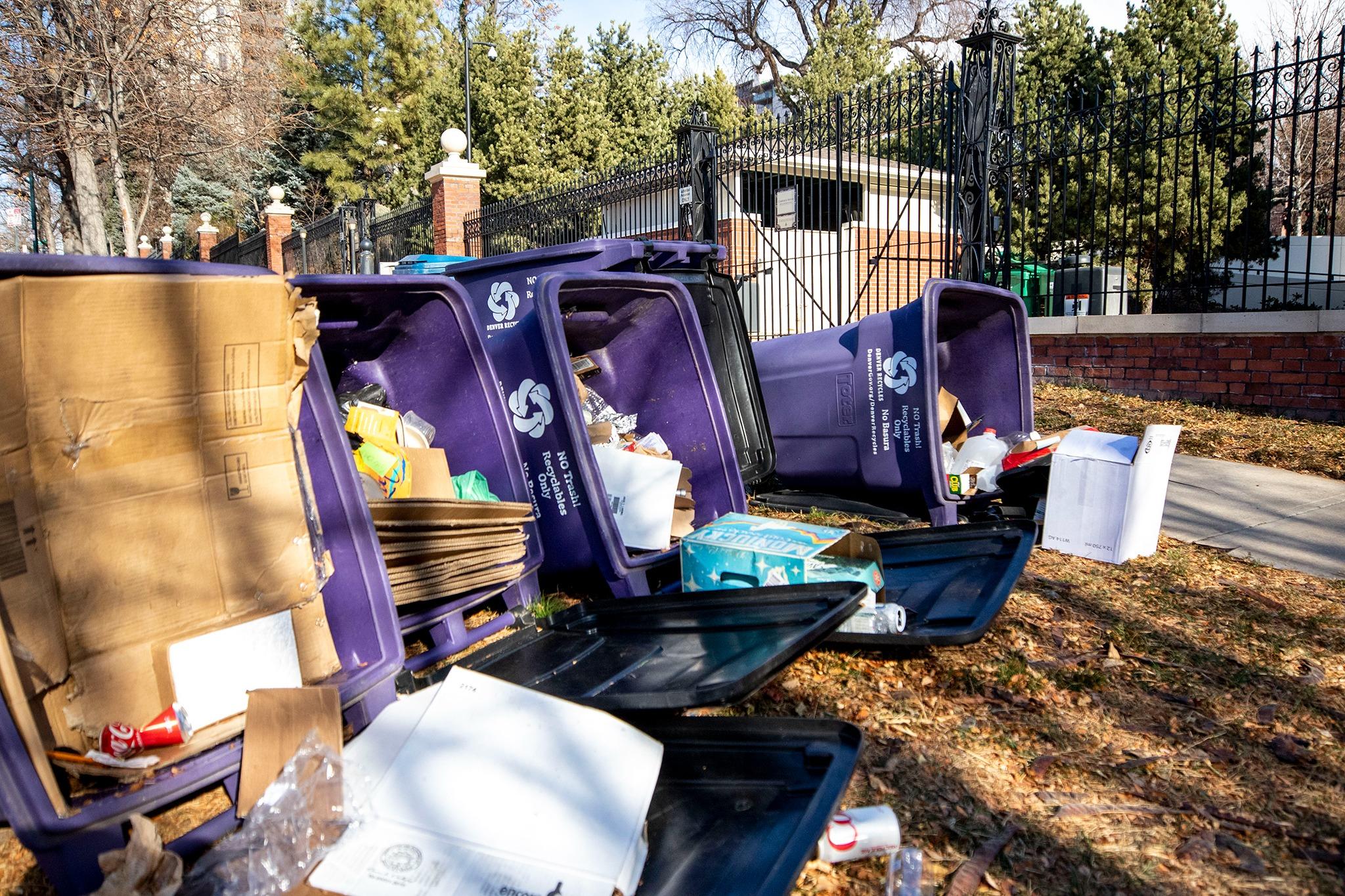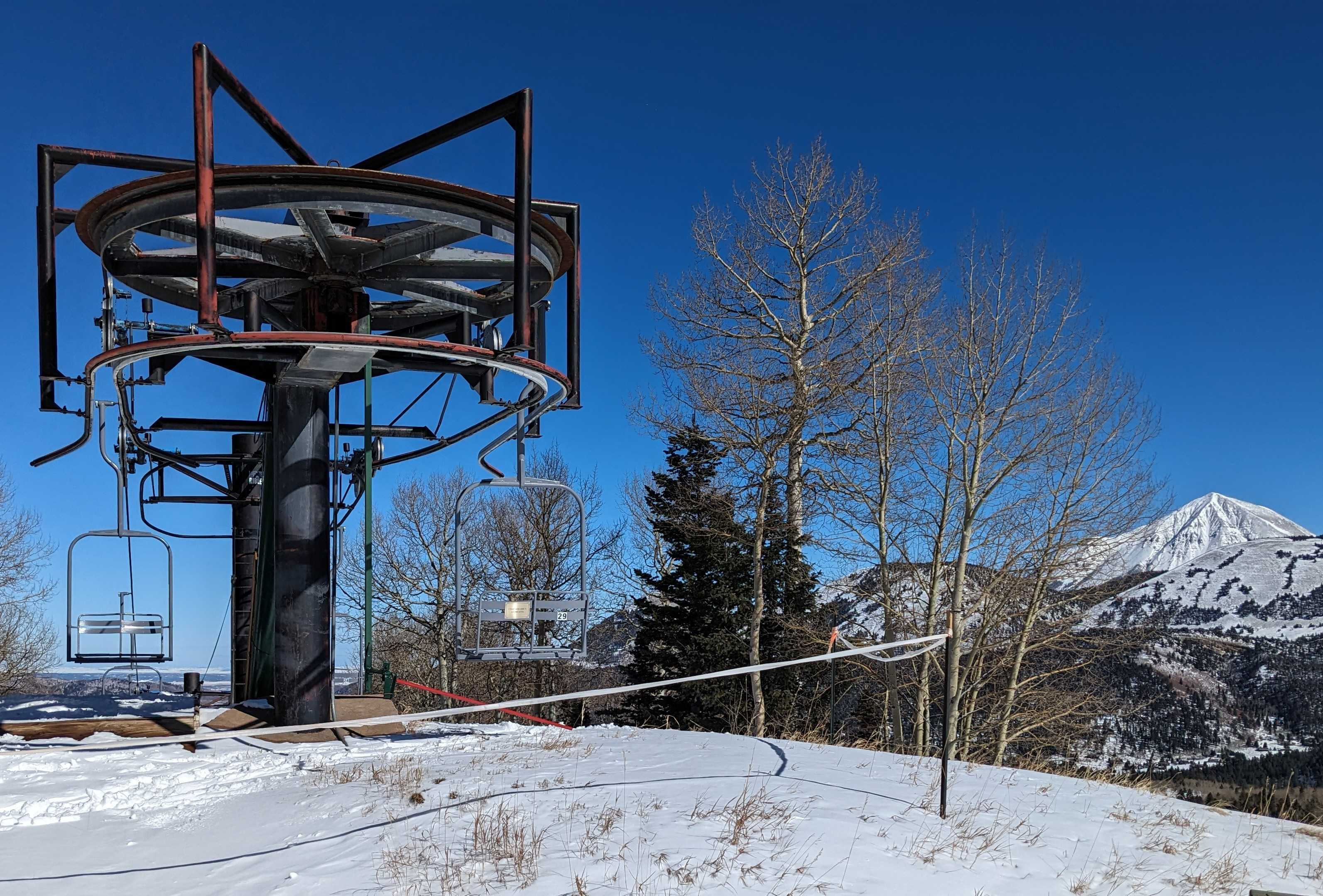
Eight student body presidents from Colorado college campuses expressed their fears and hopes to Sen. John Hickenlooper Monday as they prepare for potentially big changes from the new administration of President-elect Donald Trump.
“I know there's a lot of unrest and uncertainty and fear on campuses for a whole bunch of different reasons,” Hickenlooper told the students on a Zoom call. He said it would take a lot of work to defend funding for many of the concerns students raised.
Hickenlooper said he doesn’t think the Department of Education, which oversees student loans and many grants that serve colleges, will be eliminated as Trump has repeatedly promised to do.
“I don't think they can legally abolish an agency like that but they might try,” he said, calling the threats to higher education funding “sobering.”
But Hickenlooper is hopeful there is a bipartisan middle solution that recognizes there are just as many community colleges in red states as blue states.
“President-elect Trump says so many things and says them with such conviction and yet in the end he's open to negotiation on almost everything,” Hickenlooper said.
Rising tuition and housing costs
High tuition and housing costs were students' number one concern. Alex Radz, student body president at the University of Colorado Boulder, said the average rent in the University Hill neighborhood exceeds $1,500 a month. Students would like to see more funding for housing and accountability for property managers.
“A frequent problem is when students look to resign a lease for their next year, they'll only be given about a 10-day notice (regarding) a raise in rent and a lot of times, this rise in prices is more than they can afford,” he said.
Leilani Domingo, a student and student body president at Colorado Mesa University, said more federal investment is critical.
“While CMU prioritizes affordability, the rising cost of higher education and just life in general, gas prices, groceries — that remains a huge concern for students and their families,” she told Hickenlooper.

Students spoke of juggling multiple jobs while depending upon federal student loans to be able to finish their degrees. Over the course of a year, a third to half of students on some campuses are food insecure. They also want more assistance for campus food pantries.
“It is something that we restock on Fridays … and usually on Monday, as soon as we open, it's cleared out,” said Alondra Solis, the student body president at CSU Pueblo.
Other students want more help for middle-class students who don’t qualify for federal financial aid and must instead rely on student loans that will take years to pay off.
Trump’s platform talks about “more affordable alternatives to a traditional four-year college degree” and funding “proven career training programs.” It promises to make higher education more affordable. But during his first presidential term, while Trump’s budget proposals called for expanding Pell Grants, they proposed slashing funding for other student aid programs such as federal work-study programs and public service loan forgiveness. Congress, however, resisted the most drastic cuts.
Hickenlooper told students that efforts will continue to find bipartisan support for expanding and increasing federal Pell Grants for low-income students. The grant is currently $7,395.
“In many cases, it rarely pays for more than about a third of what your overall costs are,” Hickenlooper said. “Being able to get that good job that leads to a career is a function and to a certain extent of not coming out of college with $50,000 or $60,000 worth of debt. That just distorts all your choices.”
Access to mental health a top concern
Students said trying to balance academics, work, home life and paying for rising food and rent costs is increasing stress levels.
Nick DeSalvo, student body president of Colorado State University, said CSU offers some free counseling services but he said it’s been increasingly difficult to attract and retain psychologists and therapists. That’s because faculty and staff compensation fall behind the average cost of living in the city of Fort Collins, “meaning that private practice is much more lucrative for a lot of these professionals.”
Hickenlooper said the Bipartisan Safer Communities Act of 2022 was a large investment in mental health services that brought more counseling services to campuses. He said another legislative effort, the Peer-to-Peer Mental Health Act, which helps fund peer-to-peer mental health programs in K-12 schools, could be expanded to colleges.
Hickenlooper noted that first-time college students, especially those who are financially independent or who have low incomes, currently qualify for premium tax credits to help lower the cost of health insurance. Those are set to expire in 2025.
“We're going to push as hard as we can to make it part of the tax deal,” he said, referring to future Republican-sponsored proposals to cut corporate taxes.
Hickenlooper also said he backs a proposed Health Care Affordability Act that would make the enhanced tax credits permanent.
The fate of undocumented students
Several students worry about challenges to institutional support for undocumented students or students from mixed-status families.
“Federal initiatives that celebrate diversity and fund programs for historically underrepresented students, ensure that higher education remains a place of opportunity for everyone,” said Hailey Kreiling, student body president at Regis University.

Colorado is one of 25 states that allow undocumented students to pay in-state tuition.
Hickenlooper responded to another student’s concern about threats to deport undocumented people, saying they would fight to keep families together.
He said some Republican senators understand the connection between economic growth and immigrant workers. He’d like a solution that allows American workers' wages to not be diluted but that also allows for guest worker visas in several industries.
Climate change is another area of intense concern to students. Contradicting a large body of research, Trump has called climate change a “hoax.” Students said they want sustainable practices on campus and education that is “climate-conscious.”
Hickenlooper, who received a Master’s degree in Earth Environmental Science in 1979, said his peers in the 1980s predicted many of the extreme weather conditions that are happening right now.
“Now we're living that reality and there is beginning to appear a sense of urgency that's got to be driven by college campuses. College campuses have always been the engine of social change.”









